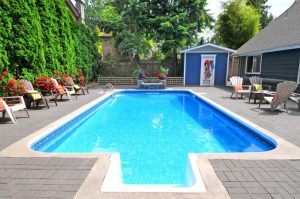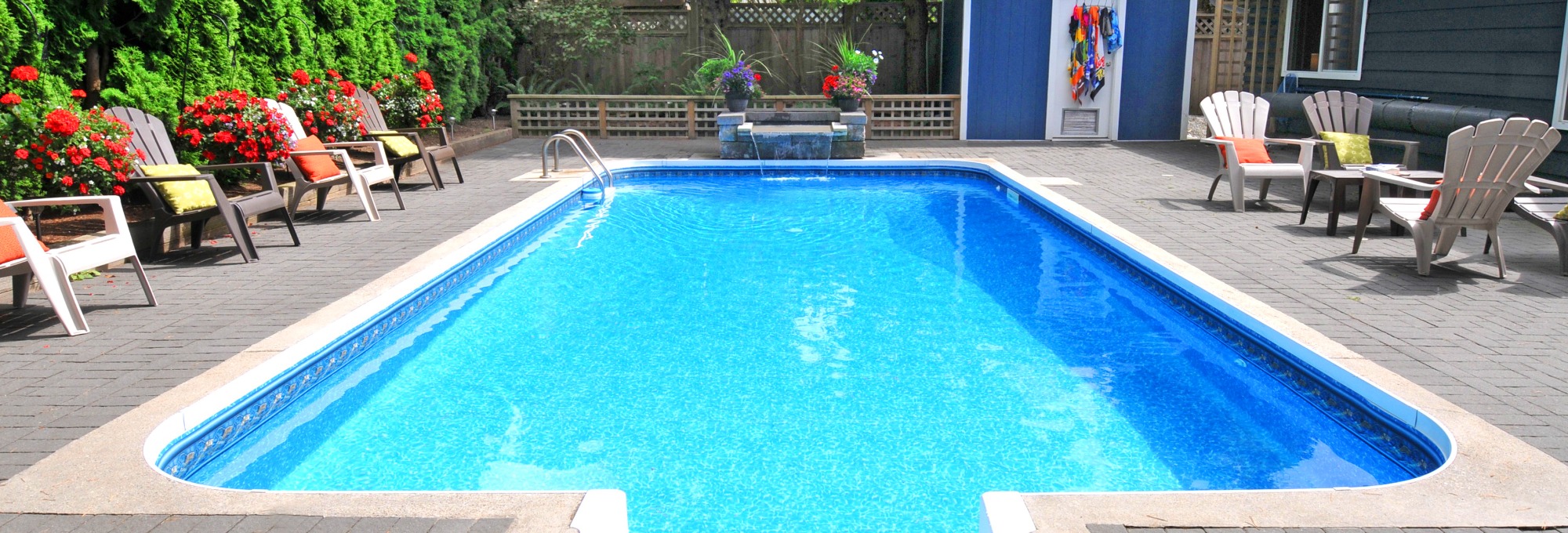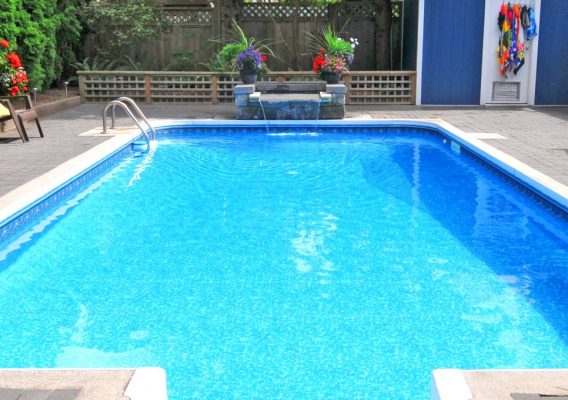 An inground pool heater can add many more days and weeks of enjoyable swimming, particularly in climates like Connecticut with four distinct seasons. Extending your inground pool fun time with a heater can be enjoyable and affordable when you choose the best type of heating pool technology for your pool.
An inground pool heater can add many more days and weeks of enjoyable swimming, particularly in climates like Connecticut with four distinct seasons. Extending your inground pool fun time with a heater can be enjoyable and affordable when you choose the best type of heating pool technology for your pool.
The Swimming Pool Store offers pool heater consultations to evaluate important factors when choosing the most effective and cost-efficient pool heater for your inground pool.
Inground Pool Heater Benefits
There are many benefits to adding a pool heater to your inground pool. In addition to ensuring that your water is at the right temperature for comfortable swimming all season long, a pool heater will extend your swimming season by several weeks and even up to an entire month or beyond in northeastern climates.
W ith an inground pool heater, you can open up your pool at least a couple of weeks earlier than usual and keep it open a couple of weeks after you normally close it.
ith an inground pool heater, you can open up your pool at least a couple of weeks earlier than usual and keep it open a couple of weeks after you normally close it.
Having a heater for your inground pool is also very nice if you like to entertain. Your friends will love the pool party when they aren’t freezing and are guaranteed to enjoy a nice warm pool day or evening. For pool owners that have children, a heated pool is more inviting and easier to get the kids to enjoy the pool or teach young ones the basics of swimming. Even your pets will enjoy a warmer pool if they like to swim. Making sure that everyone you care about enjoys your pool as much as you do is a great benefit to a heated pool.
Pool Heater Options for Inground Pools
The most common types of pool heaters used for inground pools include gas, propane, and electric heat pumps. Solar heating pool systems are more popular in climates with year-round high sun exposure, although using a solar blanket is recommended no matter what type of pool heater you choose. Using a solar blanket, especially at night, significantly reduces pool water evaporation which is the greatest cause of heat loss.
There are a few factors to consider when choosing the best inground pool heater for you. Some of the most important considerations include:
- The size of your pool
- The climate you live in
- The amount of sun exposure on your pool daily
- The amount of wind exposure
- How quickly you want to heat the water
In areas like Connecticut, pool owners want to heat the water quickly and maintain a nice comfortable temperature throughout the season. Additional information on how to choose the right type of pool heater can be found at the U.S. Department of Energy.
Propane and Natural Gas Inground Pool Heater
Gas pool heaters operate with either natural gas or propane, and both heat pool water quickly. There are differences, however, regarding the distribution methods and energy content in each fuel type. Choosing the best option between propane or natural gas will depend upon your needs and priorities. Both fuel methods for gas pool heaters can heat your pool even if the outdoor temperature is below 55°F.
Some differences between natural gas and propane pool heaters include:
- Fuel source – natural gas heaters will connect to your permanently fixed gas line, making it convenient to always have gas available. Propane heaters require a storage tank and refilling when the gas runs out. This requires active management of your fuel supply.
- Energy usage – propane has advantages over natural gas when comparing the amount of energy received from one cubic foot of each type of fuel. Propane can produce approximately 2,516 BTUs from one cubic foot of fuel, while natural gas produces about 1,030 BTUs per cubic foot. A propane inground pool heater can heat the same volume of water as a natural gas heater with a fraction of the amount of fuel.
- Fuel cost – the advantage that propane has over energy usage must be compared to the cost of the fuel. In some parts of the country, depending on the cost of each fuel source and your environment, one may have more advantages over the other.
Propane pool heaters are very popular in Connecticut as they heat the water quickly, are reliable, and efficient. The Swimming Pool Store can help you evaluate each option and choose the best gas pool heating method for you.
Inground Pool Heat Pumps
An electric heat pump is another popular method for heating inground pools, although they operate dependent upon the outside temperature. Since most pool owners do not open the pool until the outdoor ambient temperature is above 55°F, this is typically not a problem. For those that wish to start heating their pool earlier, however, or heat their pool later in the season, this may be an issue. Electric heat pumps operate by drawing in outside air where a compressor increases the heat to pass warm gas through the circulating pool water. An electric heat pump will cost more than a gas heater, although it typically costs less to operate.
Inground Pool Heater Consultation
The Swimming Pool Store offers professional consultations to help you choose the best type of inground pool heating method to meet your needs with the most energy-efficient pool heating technology. We offer the best inground pool heaters on the market from the top manufacturers to ensure reliable and energy-efficient heating for your inground pool.
The Swimming Pool Store offers more than 50 years of experience in providing high-quality, knowledgeable swimming pool supplies and services. You can find all the pool supplies you need for the entire year in our large, modern store and ask about our quality swimming pool services. Contact us to learn more and to set up your own personal pool heater consultation to help you choose the best inground pool heater.


